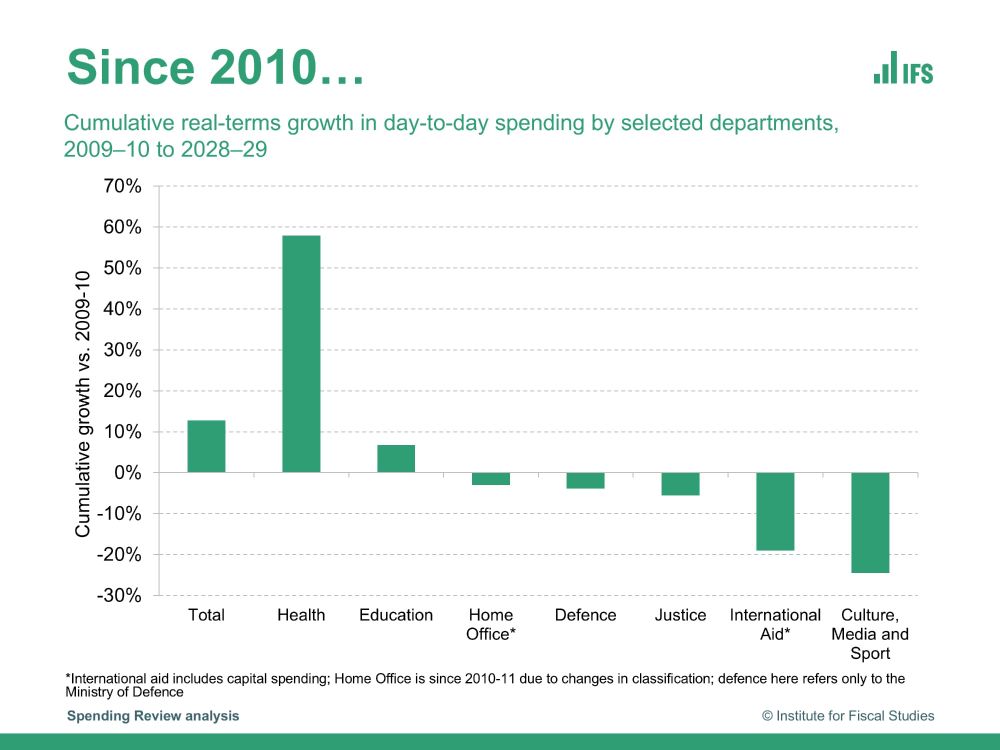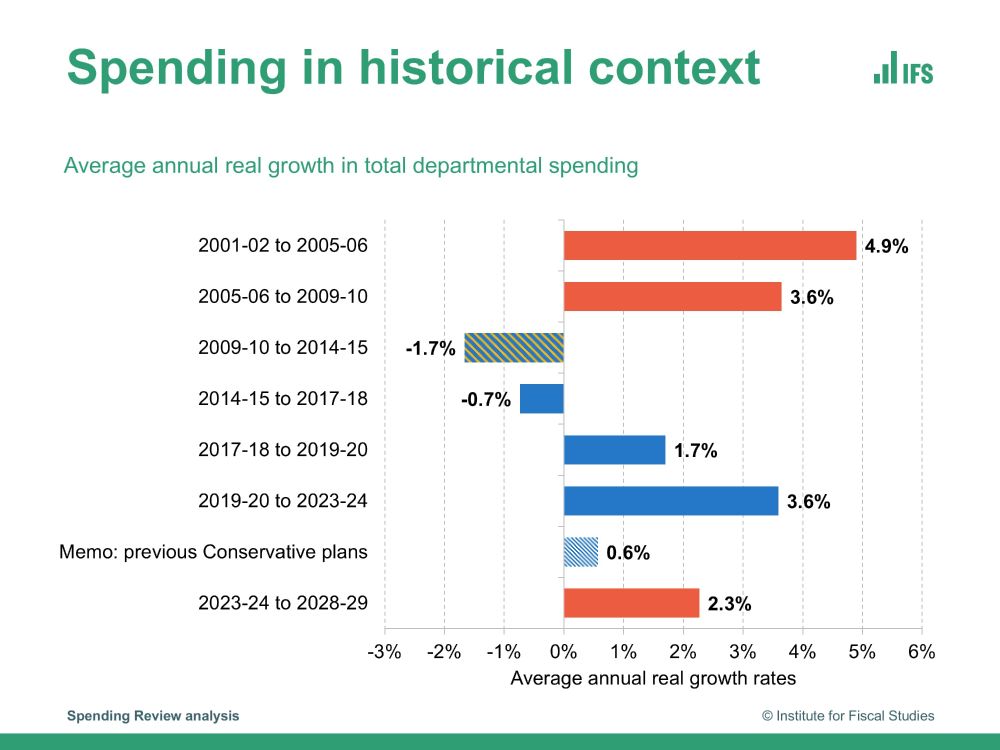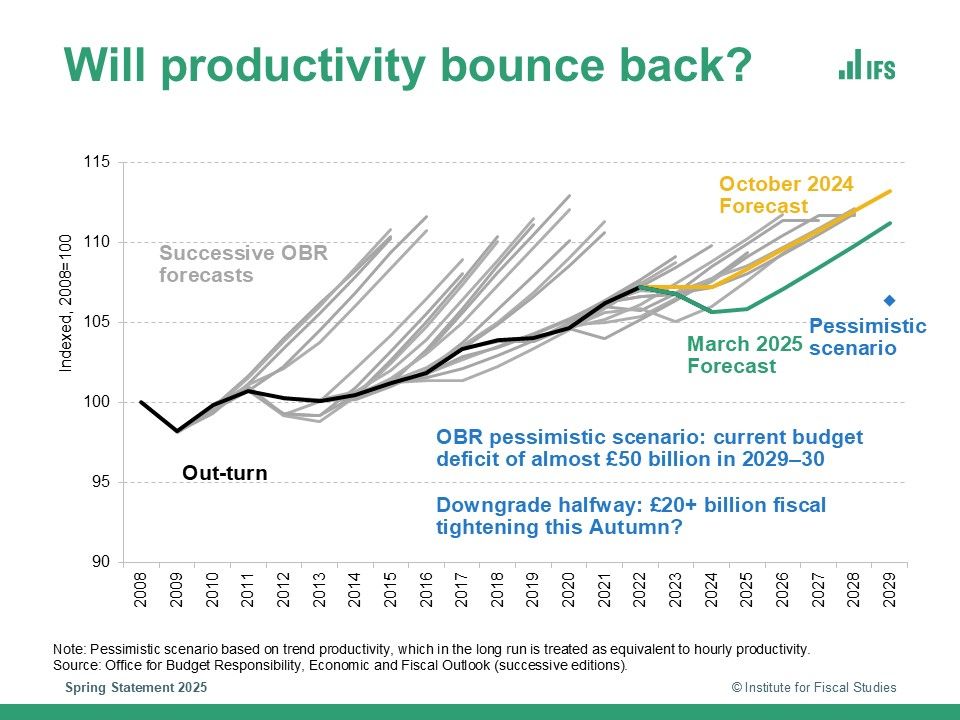“It would of course be possible to stick with the manifesto commitments but that would require things like deep cuts in capital spending.”
www.ft.com/content/a502...

Doing a bigger package to increase ‘headroom’ wouldn’t be costless – but nor is limping from one forecast to the next under constant speculation that policy will be tightened again.
But doing the bare minimum risks another fiscal groundhog day next year.
🧵 THREAD on our new IFS Green Budget's findings on the UK's economic outlook and fiscal situation:

Doing a bigger package to increase ‘headroom’ wouldn’t be costless – but nor is limping from one forecast to the next under constant speculation that policy will be tightened again.

Spending on justice, in contrast, will be lower in 2028–29 than two decades earlier despite recent increases. Spending on overseas aid and culture, media & sport will also be lower than in 2010.

Spending on justice, in contrast, will be lower in 2028–29 than two decades earlier despite recent increases. Spending on overseas aid and culture, media & sport will also be lower than in 2010.
This is below the previous parliament’s average of 3.6%, but higher than the last government had outlined.
@beeboileau.bsky.social on the big picture choices in the Spending Review:

This is below the previous parliament’s average of 3.6%, but higher than the last government had outlined.
@beeboileau.bsky.social on the big picture choices in the Spending Review:
These estimates are uncertain (many of the likely benefits haven’t happened yet!) but suggest Sure Start may go 90% of the way to ‘paying for itself’, with additional long-run benefits for children as they grow up
We estimate that over the long run, it might generate £2.4bn in savings for government per cohort.
Including wider benefits like higher earnings, total long-run benefits could be twice the cost.
[10/11]

These estimates are uncertain (many of the likely benefits haven’t happened yet!) but suggest Sure Start may go 90% of the way to ‘paying for itself’, with additional long-run benefits for children as they grow up
They remain above the productivity growth rates seen since 2008 – a downgrade to the OBR's forecast could cause a real fiscal headache for the Chancellor.

They remain above the productivity growth rates seen since 2008 – a downgrade to the OBR's forecast could cause a real fiscal headache for the Chancellor.
How might they do this and what kind of scale of changes would be required?
[THREAD]

How might they do this and what kind of scale of changes would be required?
[THREAD]
We find that while it did keep more students in full-time education, this didn't pass through to better quals or earnings later in life - in fact, reduced links to the labour market may have even reduced earnings.
Have a read of the thread below and the report 👇
The EMA only provided around 40p of benefits to students for every £1 spent.
THREAD on our new @nuffieldfoundation.org-funded report:
[1/10]

We find that while it did keep more students in full-time education, this didn't pass through to better quals or earnings later in life - in fact, reduced links to the labour market may have even reduced earnings.
Have a read of the thread below and the report 👇

